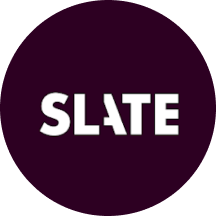François Truffaut’s 1966 film “Fahrenheit 451,” adapted from Ray Bradbury’s iconic dystopian novel, presents a chilling vision of a future where firemen don’t put out fires, they start them, setting books ablaze to enforce a regime of ignorance.
Nearly six decades after the film’s release, its fictional world feels less like a cautionary tale and more like a mirror held up to modern America. The flames may be metaphorical now, but the erosion of truth, the cult of distraction, and the political weaponization of apathy burn just as hot.
In the film, society has normalized book burning, but the deeper decay lies in how people have come to accept, and even prefer, a life without reflection. This is not a story about forceful censorship, but one of self-erasure, where citizens no longer need

 Milwaukee Independent
Milwaukee Independent

 Slate Politics
Slate Politics Everett Herald Sports
Everett Herald Sports Newsweek Top
Newsweek Top AlterNet
AlterNet People Top Story
People Top Story The Babylon Bee
The Babylon Bee NBC Chicago Entertainment
NBC Chicago Entertainment Vox
Vox New York Post Video
New York Post Video